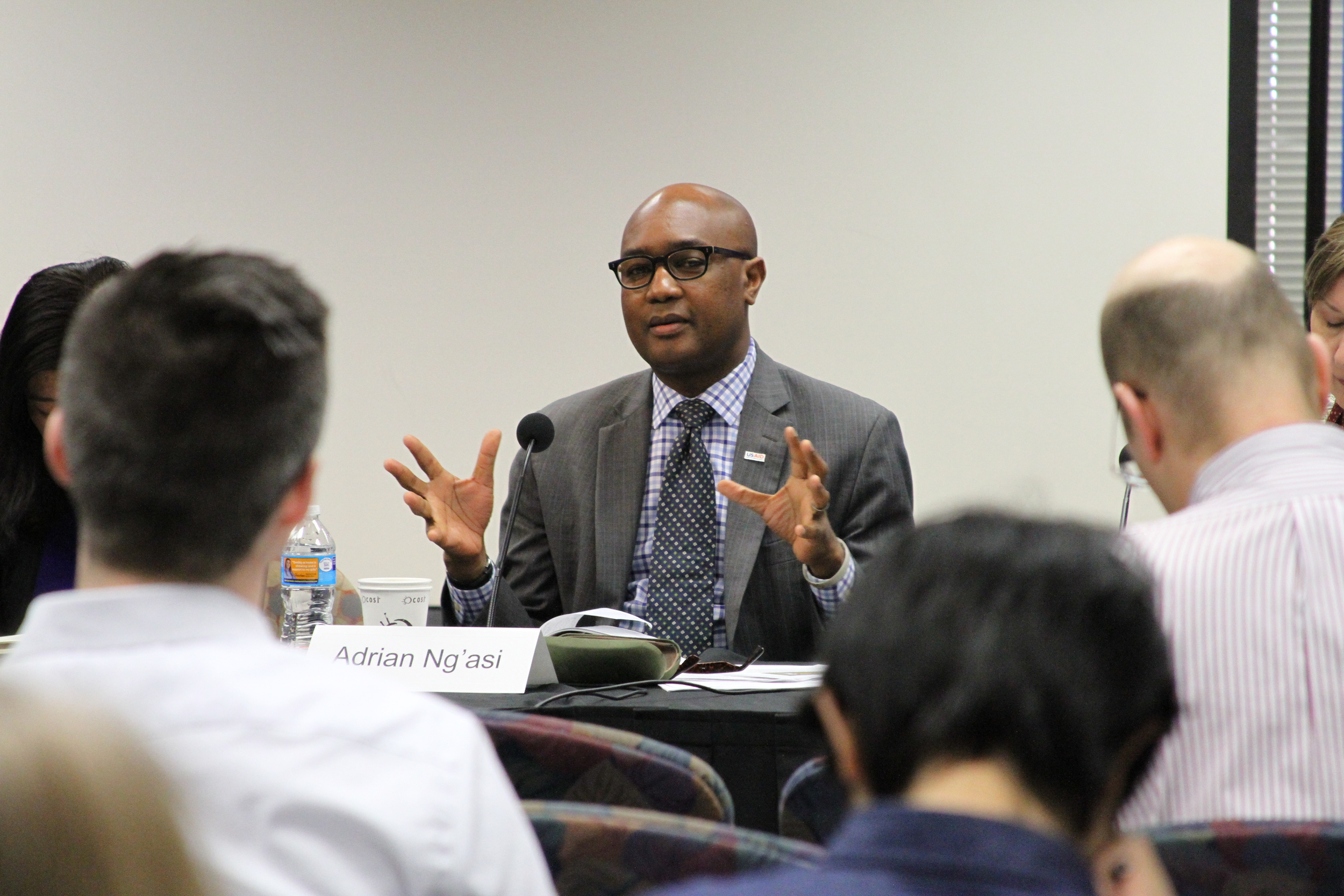This event was part of China-Africa Week at SAIS.
Monday kicked-off the first event of China-Africa Week at SAIS with the Policy Roundtable: What is China Really Doing in Rural Africa? The panel was made up of five policy experts regarding China’s involvement in African countries, specifically Tanzania, Mozambique, and Uganda. The forum was moderated by Professor Jessica Fanzo and Professor Deborah Brautigam.
The discussion focused on several topics:
US – China relations where discussion was led by International Economist at USAID, Adrian Ng’asi.
The Pea-Pea project in Tanzania, was discussed by Dr. Wu Jin, Dean of College of Humanities and Development Studies, China Agricultural University. Dr. Jin explained her project is the first Chinese community development project in Africa. Their focus is on how to introduce technology to local farmers based on the University’s expertise. The Pea-Pea project has now been chosen as a model for replication in 100 African villages.
Agricultural engagement in Mozambique where Dr. Zhang Chuanhong, Associate Professor at China Agricultural University, discussed the purpose and scope of the Chinese Agro-Technology Demonstration Center (ATDC). She noted that the ATDC unfolds in three stages: construction, technology transfer, and sustainability. Dr. Chuanhong explained the purpose of such projects is to gain more involvement from African stakeholders.
Chinese expertise in Uganda as researched by Mr. Josh Maiyo of Webster University. Mr. Maiyo discussed the nature of relationships between the Chinese and Ugandans in terms of knowledge transfer at the Ugandan ATDC. Mr. Maiyo explained the importance of involving local Ugandans to better develop their capacity in leading projects.
China’s Agro-Technology Demonstration Center in Tanzania was the topic discussed by Dr. Hezron Makundi of Katholieke Universiteit. Mr. Makundi discussed the technical, political, and commercial aspects of these programs. He explained their importance to agricultural investments through the adoption of Chinese technology, the attraction of projects to senior officials, and the incentives of running the project, respectively.
The forum was followed by two rounds of Q and A. In the first round, the floor was open to the audience where questions ranged from exploring the details regarding specific Chinese investments to the social dynamics between the Chinese in certain African countries. The second round was where the moderators took the opportunity to round the discussion with follow-up questions to the panel’s presentations. Professor Fanzo and Professor Brautigam asked the panel to further consider food security in regard to the nature of these Chinese projects, and the implications of water intensive crops like rice.












